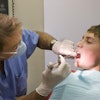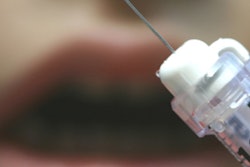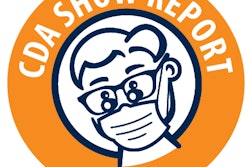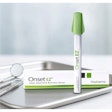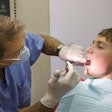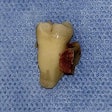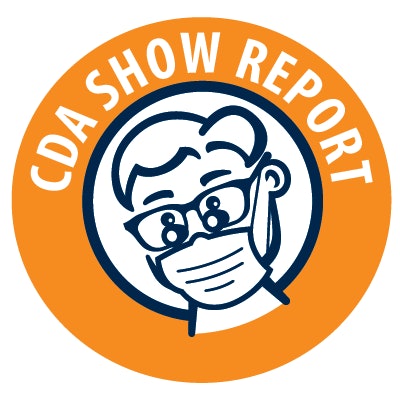
SAN FRANCISCO - Dental anesthesiologist Leonard Naftalin, DDS, got an appreciative chuckle from the audience at the beginning of his presentation on anesthesiology and children's developing brains at the California Dental Association's CDA Presents 2018 meeting.
The question he gets from some parents of young children is meant well and laced with concern about the long-term effects of anesthesia on their child's developing brain, he noted: "Will [child's name] still get into Harvard after this procedure?"
Dr. Naftalin presentation was titled "Are we harming our kids' brains? The neurotoxicity of anesthesia and the developing brain." He practices at a number of offices in California and maintains a teaching position at the University of California, Los Angeles (UCLA) School of Dentistry in the dental anesthesia and pediatric dental departments.
Animal and human studies
Dr. Naftalin focused on what is known about the safety of anesthesia and what information dentists can take back to their patients and their parents. The underlying question is an important one, he noted.
 Dr. Leonard Naftalin spoke on the effect of anesthesia on children's brains at the CDA Presents 2018 meeting.
Dr. Leonard Naftalin spoke on the effect of anesthesia on children's brains at the CDA Presents 2018 meeting."When we discharge our patients from anesthesia and send them home, is their recovery complete?" he asked.
Practitioners want to follow evidence-based practices, but that can be difficult because the literature is not always clear, according to Dr. Naftalin. Many of the most often cited studies are animal studies, which, while valid, also have some limitations, he said.
As an example, one study limitation he often encounters is the concept of causation versus correlation.
"In effect, does the anesthetic cause the effect?" he asked.
Dr. Naftalin gave the example of older adults developing Alzheimer's disease and noted anecdotally that many older adults move to Florida.
"Does this mean that older adults develop Alzheimer's disease because they moved to Florida?" he asked. "As far as we know, there's no causation -- moving to Florida doesn't cause Alzheimer's disease."
Dr. Natftalin then took the audience through a number of animal studies. These studies were the first to broach the idea that certain anesthetics might have an effect on developing brains, he noted. He also cautioned, however, that these studies are only the base of the research foundation, not the final word.
There are many difficulties of looking at animal studies and applying them directly to humans, he said. For instance, a higher dosage might be required for the same effect in animals. It is also impossible to know what effects stress, inflammation, and surgery might have on an animal's response to anesthesia. A human brain may have a greater capacity to recover than that of animals, he noted.
Dr. Naftalin then discussed some retrospective studies that examined children's development. He focused on study results and issues, plus concerns. He reiterated his point about many of the studies having incomplete data and not being able to account for influencing factors.
However, several randomized controlled trials are underway, with results expected in the next several years, he added.
Talking with parents
When talking with parents, Dr. Naftalin sometimes refers them to the SmartTots.org website, a joint effort between the International Anesthesia Research Society and the U.S. Food and Drug Administration that funds research into anesthesia safety. This site offers medical and dental society statements, clinical research, and the latest news on this research.
“It's important to have these discussions with parents/caregivers to explain the uncertainty of data and to validate their concerns.”
When talking with dentists and parents, he also sometimes asks if a procedure could be delayed until the patient is older.
"Can silver diamine fluoride buy us some time until these kids get to be 2, 3 years old? Does this need to be done right now?" he asked. "The risk/benefit outcome is up in the air. Are we weighing potential neurodevelopmental issues versus treating an abscess?"
In the end, it's up to the practitioner to have a discussion with the patient's parent to ensure everyone understands the state of research, Dr. Naftalin said. He also recommends that practitioners add a line to their informed consent form that states that there are presently unknown risks that may be involved.
"Informed consent really is the first step," Dr. Naftalin noted. "It's important to have these discussions with parents/caregivers to explain the uncertainty of data and to validate their concerns."
And as for the earlier question those concerned parents ask, Dr. Naftalin finds humor is sometimes the most reassuring medicine.
"I tell them that their child will still be in the running," he said smiling.



